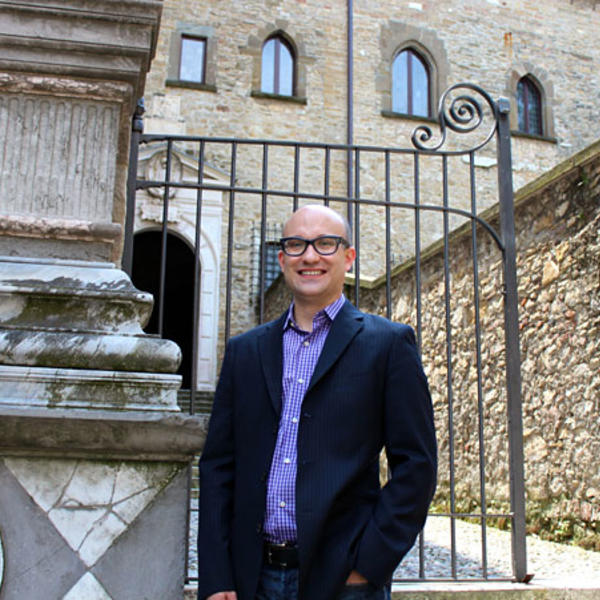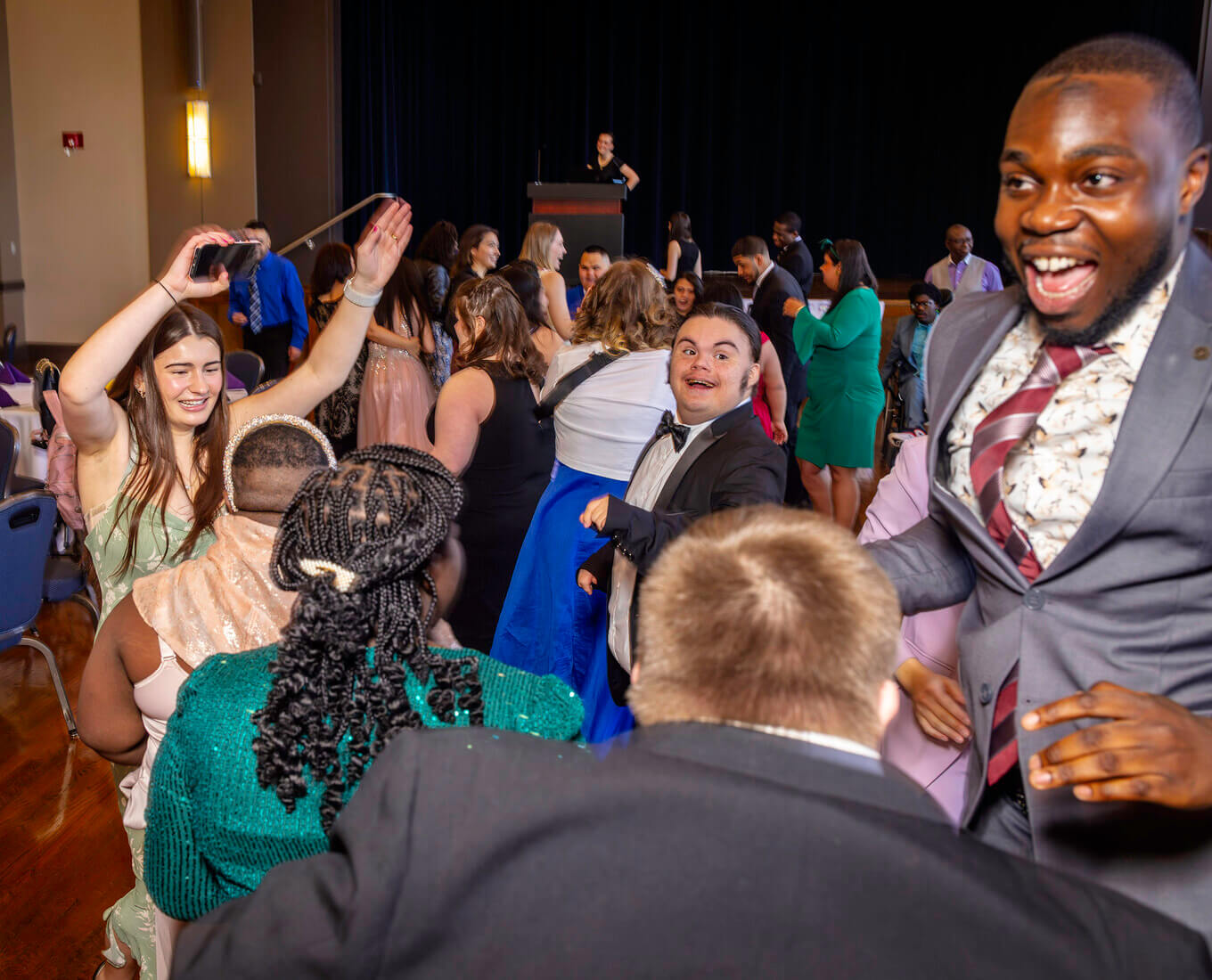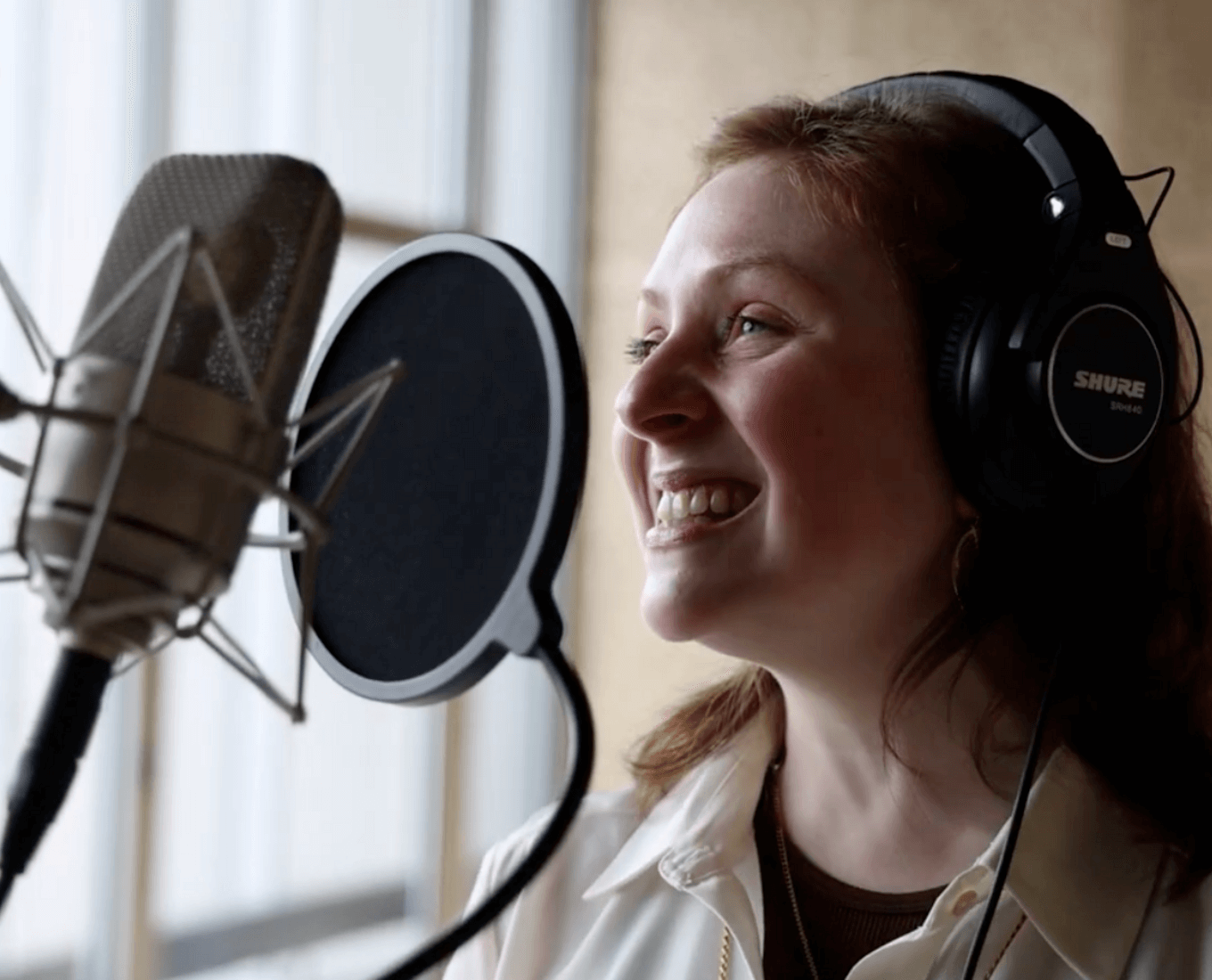Known for his popular hip-hop, rap and blues classes among Holy Cross students, and for organizing hip-hop festivals for Worcester area high school students, Daniel DiCenso ’98, assistant professor of music, is chasing after his other passion this summer—rare, early music sources.
Right before DiCenso returned to the College to teach in 2008, he traveled to Monza, Italy, to research a manuscript that was cataloged as a 10th- or 11th-century source of Gregorian chant (liturgical music used in the Roman Catholic Church). “Very little was known about the manuscript, but the catalog description didn't seem to jibe with the date,” DiCenso observes. “When I arrived in Monza I was shocked to discover that the manuscript actually might date back to as early as 850 A.D.”
These findings are significant because early sources of Gregorian chant survived in France and Switzerland, but scholars thought that no early Italian sources were in existence. “This Monza manuscript is a kind of ‘missing link’ between a body of music that was allegedly exported from Rome to all Christian churches during the eighth and ninth centuries,” he explains.
How could this happen? Because a complicated cataloging error had dated the manuscript incorrectly, therefore, no one paid much attention to the chant it contained. Until DiCenso began his work on the Monza manuscript, which he describes as “one of the three earliest sources of Gregorian chant in existence, the only source of its unique type, and the earliest source to contain a complete chant formulary for the famous ‘Requiem’ Mass, which was the inspiration for famous works by later composers such as Mozart and Verdi.”
DiCenso has recently been invited to present this research at the Pontifical Institute for Sacred Music in Rome on July 8, 2012 as part of conference session sponsored by the Cantus Planus study group of the International Musicological Society. “All of the chant scholars participating in the special session are excited by the rare opportunity to present our research at the Pontifical Institute, but for me there is a special significance given that my research deals directly with questions about the history of the liturgy in Rome.”
The Pontifical Institute of Sacred Music was founded by Pope Pius X in 1910 to teach the disciplines of liturgical music in terms of practical, theoretical and historical knowledge, to promote the dissemination of the traditional sacred music, and to encourage artistic expressions appropriate to today's culture.
“This source is new and important evidence that both complicates and challenges the dominant view of chant transmission,” explains DiCenso’s colleague Jessica Waldoff, associate professor of music. “Dan’s research is groundbreaking.”
DiCenso’s project is titled: “More Roman than ‘Gregorian,’ More Frankish than ‘Old Roman:’ What a Newly Rediscovered Italian Source Reveals about the Roman and Frankish Character of Chant Transmission in the Mid-Ninth Century.”
His work on this Monza manuscript is part of a larger study to edit all of the existing sources of Gregorian chant for the Mass up to the end of the ninth century. “All of the earliest sources have not been edited,” Daniel explains, “and so producing a volume that collects all of these sources together in one place would be a significant scholarly advancement in the field.”
Recently awarded the Robert L. Ardizzone (’63) Junior Faculty Research Award by Holy Cross, he is using this to work on the Monza manuscript this summer, and also meet with the few experts in the world who have the expertise to verify his findings—as well as view and research other manuscripts in Monza, Bergamo and Milan.
The chant doesn’t stop there. At Holy Cross, DiCenso recently taught a course titled “Chant as Popular Music,” which featured a class trip to the Benedictine Abbey Regina Laudis, in Conn., to hear live chant being sung in the context of a Vespers service. This upcoming spring semester he hopes to offer a course called “Gregorian Chant,” and this fall he will teach chant in a class titled “History of Western Music.”
DiCenso earned his B.A. in music from Holy Cross, an M.A. in music from the University of Pennsylvania, an M.A. in classical studies from Villanova University, an M.S. in education from the University of Pennsylvania, a Ph.D. in education from the University of Pennsylvania, and his Ph.D. in musicology from the University of Cambridge in 2012, where he was the first Holy Cross student to earn a Gates Scholarship. Last academic year he served as coordinator of the Medieval and Renaissance Studies Program. DiCenso resides in Boston, Mass.
Music Professor to Present Rare Research in Rome

Read Time
3 Minutes


